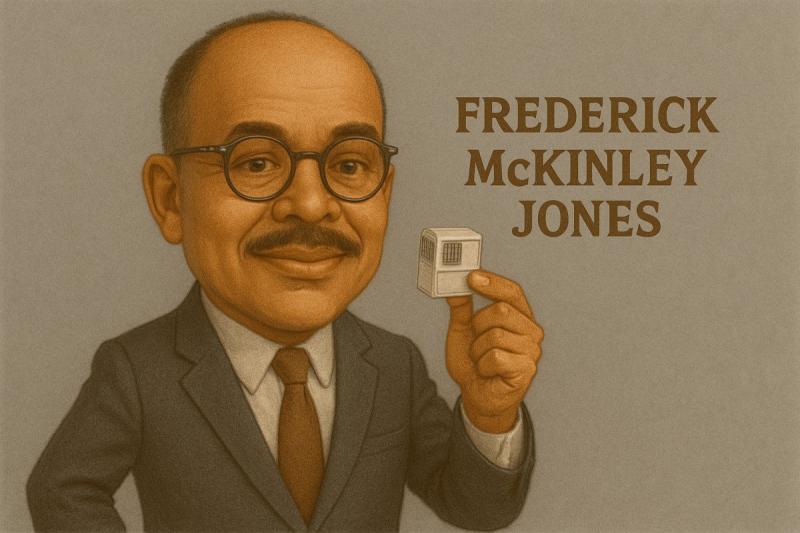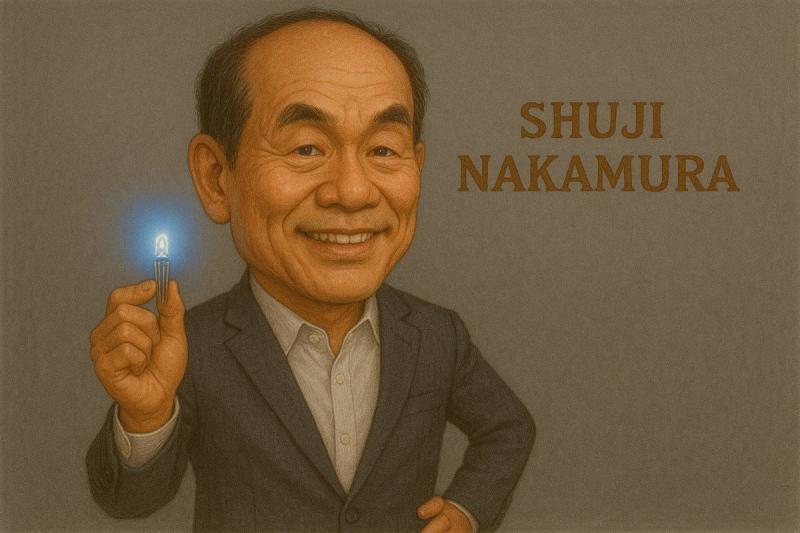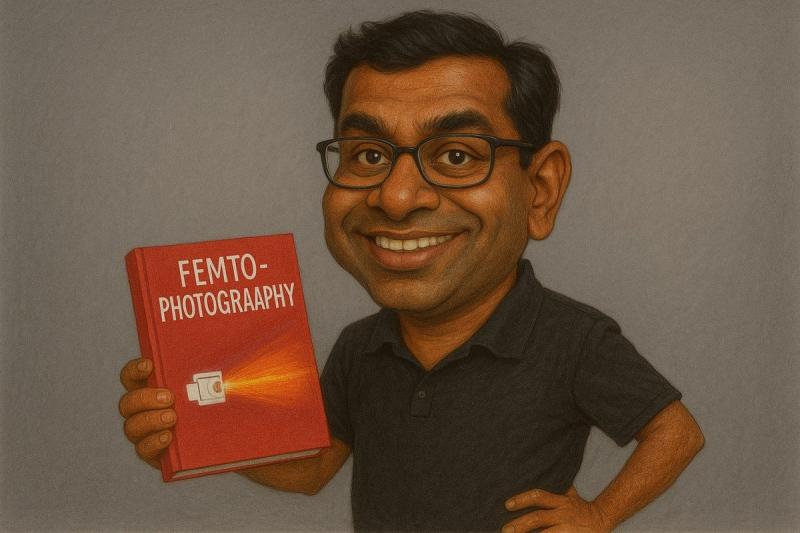Derek Muller (Veritasium): The YouTube Physicist Who Tricks You into Learning
Okay, confession time.
There was a point in my life when I believed you needed a whiteboard, a monotone voice, and a mild existential crisis to learn physics.
Then came Derek Muller—the “Veritasium guy”—and proved me wrong. Very wrong.
This isn’t your average science explainer. Derek Muller makes you question what you think you know. Then he explains why you were wrong (gently, with graphs and a smile), and you somehow thank him for it. It's honestly kind of magical.
Let’s talk about how this Australian-Canadian physicist—yes, he’s got dual citizenship and dual brainpower, apparently—became one of the most captivating science communicators on the internet.
Who Is Derek Muller, and Why Do People Trust Him with Their Brain?
You might’ve stumbled onto Veritasium while procrastinating on YouTube—maybe lured in by a title like “This is Why You Don’t Hear About Radiation Accidents” or “The Most Misunderstood Concept in Physics”.
Boom. Hooked.
Derek’s secret sauce? He doesn’t just explain science—he investigates it. He messes with your intuition. He asks people on the street deceptively simple questions (like “What causes the seasons?”) and lets the awkward silence linger juuuust long enough to make you squirm.
It’s not mean-spirited. It’s clever. Because he’s not making fun of people—he’s making a point: science isn’t about memorizing answers. It’s about understanding the why.
What Makes Veritasium So Dang Addictive?
Honestly? I think it’s a mix of three things:
1. Intellectual Curiosity on Fire
Derek’s curiosity is relentless. He’s like the friend who won’t let a weird fact go until he figures it out—and then builds a wind tunnel in his backyard to prove it. (True story, btw.)
2. Quality Over Flash
Veritasium videos don’t rely on flashy effects or meme edits. Instead:
-
He builds experiments from scratch.
-
He interviews Nobel Prize winners and regular folks.
-
He uses animation only when it actually helps. Bless.
3. Deceptively Simple Questions
Like:
-
“Why do heavier objects not fall faster than lighter ones?”
-
“Can you go faster than light with a laser pointer?”
-
“Is it better to walk or run in the rain?”
It’s the kind of stuff you think you know. Then Derek shows you that you don’t, and your brain does a cartwheel.
A Physicist with a Camera (and a PhD)
Derek’s not some random YouTuber who skimmed a Wikipedia article. He earned a PhD in physics education from the University of Sydney, and his thesis? It literally focused on how people misunderstand science—and how to fix that with video.
He figured out early that just dumping facts doesn’t work. People cling to their misconceptions unless you force them to confront them. His videos don’t just inform—they challenge.
Also, he’s been in this game since 2011. That’s, like, 800 YouTube lifetimes.
Veritasium’s Signature Style: Smart, Slightly Evil (In a Good Way)
Let me paint a typical Veritasium episode:
-
Derek poses a question that seems easy.
-
He interviews people who give confident—but wrong—answers.
-
You start doubting your own memory of 5th grade science class.
-
He reveals the surprising truth with an experiment, a visual, or both.
-
You laugh. You cry (mentally). You learn.
He’s not just giving answers. He’s walking you through the thinking process.
And sometimes? He trolls you a little. Like that time he posted a video titled “This Video Has 1,000,000 Views” before it had… any. (It now has over 10 million. Classic.)
Notable Veritasium Bangers (Yes, Science Has Bangers)
If you’re new to the channel—or want a refresher—here are a few must-watch Veritasium classics:
-
“The Backwards Brain Bicycle” – Can you really unlearn how to ride a bike? (Spoiler: not easily.)
-
“The Science of Thinking” – About why we believe wrong things even when the facts are right there.
-
“Misconceptions About Falling Objects” – Newton would’ve loved this one. So would your high school physics teacher.
-
“Why No One Gets the Million Dollar Prize” – Derek offered a literal cash prize to solve a seemingly simple riddle. Chaos ensued. It’s glorious.
Why He Matters (More Than Just the Algorithm)
Here’s the thing about Derek Muller: he doesn’t just chase views. He chases truth.
And in a sea of “edutainment” content, that matters.
-
He tackles misinformation head-on (COVID videos? Spot on.)
-
He dives deep into complex physics without talking down to people
-
He collaborates with other science YouTubers, educators, and legit physicists
It’s the kind of content that teaches you how to think, not just what to think. You walk away from a Veritasium video feeling smarter—but also kind of annoyed you didn’t know it already. (In a good way.)
What Sets Derek Muller Apart from Other Science Creators?
Good question. Let’s be real—there are tons of brilliant YouTubers making science content now: Mark Rober, Physics Girl, Smarter Every Day, etc.
But Derek’s style is uniquely surgical. He’s methodical. He builds tension. He doesn’t try to be flashy or funny (although he’s sneakily hilarious).
IMO, here’s the real difference:
-
Mark Rober makes you excited about science.
-
Smarter Every Day makes you appreciate science.
-
Veritasium makes you understand science—even when it hurts your brain a little.
That’s a serious superpower.
FYI: He’s Also a Dad, a Pilot, and Somehow Chill About It All
Yep. Because of course he’s a licensed pilot. And of course he casually flies over deserts while explaining relativity. Meanwhile, I get winded explaining my phone bill.
But what makes him approachable is that he’s not trying to be a “celebrity.” He just wants people to be less wrong about the world. And he’s pretty open about the fact that even he gets things wrong sometimes.
Science, after all, is messy.
Final Thought: Physics Isn’t Boring—Your Textbook Just Sucked
So, here’s my pitch.
If you think physics is boring, or too hard, or only for dudes with wild hair and chalk-covered lab coats—please give Veritasium a shot. Just one video. That’s all it takes.
Because Derek Muller doesn’t just make science entertaining. He makes it matter.
And honestly? It’s about time we all got a little more curious about the world around us. Even if it means finding out everything we thought we knew was wrong 😅.



